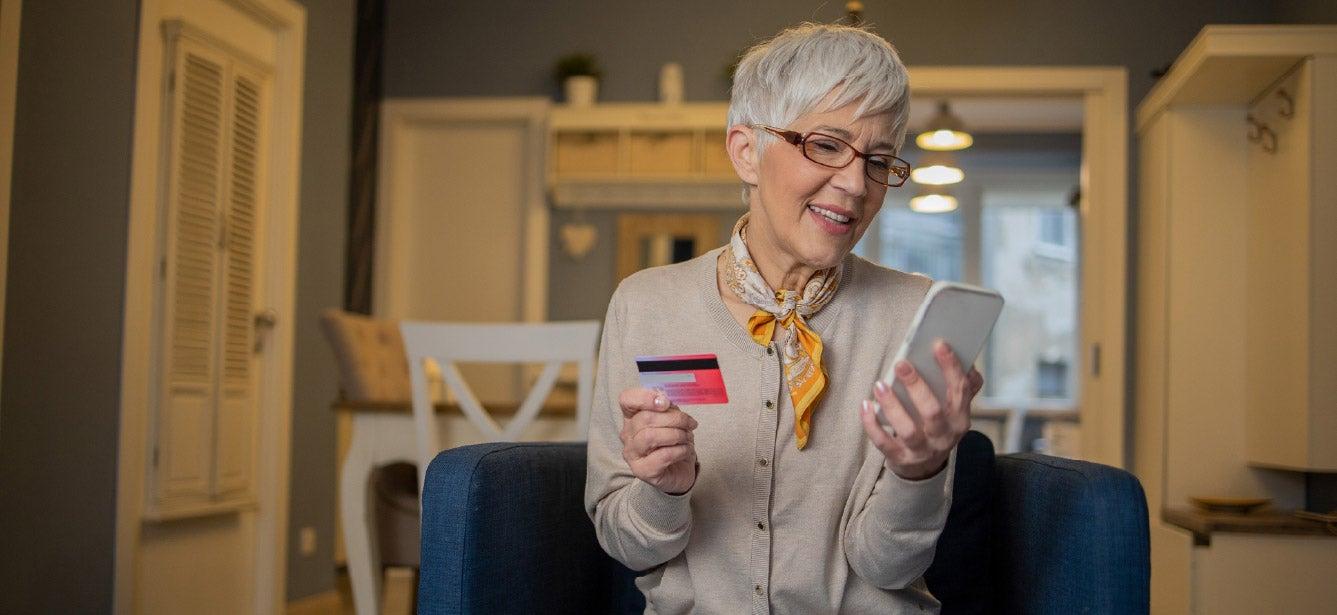
Related Topics
We all need connectedness to stay healthy and live our best lives. But social isolation and loneliness are common and pervasive, especially for older adult women.1,2
A key for reducing isolation and loneliness that’s probably already right at hand, and in an older adult woman’s home, include simple devices and more advanced innovations. As we age, these technology innovations offer a wide range of applications and benefits to combat the potential negative impacts of isolation and loneliness.
Women and technology
Today, a vast majority of older women increasingly embrace a variety of tech devices. According to an AARP Tech Trends study of men and women age 50+ in 2022, women were more likely to access and use some home devices daily:
- smart home tech (73% men, 81% women)
- home assistants (55% men, 69% women)
- tablets (53% men, 60% women).
The study found that most women at all ages rely on technology to stay connected with friends and family, including a significant number of older women—72% of those 60-69 and 57% of those 70+—and they want to do more of this.
How important is broadband access?
A critical part of staying connected is getting connected, so having broadband is of fundamental importance. The goal of getting all older adults online continues to be of the utmost importance, and public and private partnerships must continue in force to bring broadband service to all in our aging community.
What role can AI play in keeping women connected to others?
For some time now, the technology that has been the backbone behind newer and more advanced devices is artificial intelligence, or AI. It’s the intelligent power that enables the devices we all use daily. Thanks to AI, tech devices help our home voice assistant offer important weather updates in our neighborhood, play the music we most want to hear, and offer daily medication reminders. It provides the data for the precise directions when we’re driving or walking. AI is also the intelligence behind linking our medical data information for our health providers, to provide us with the best health care.
With AI, tech devices in the hands of older adult women living alone and experiencing social isolation can help reduce some of the negative impacts by helping them:
- Connect with family and friends via video chats
- Engage with others by taking remote learning and exercise classes
- Bridge geographical distances with meet-up social clubs located in other areas.
At 96 years old and living on her own, Gerri has several AI-powered tech devices that enhance her daily life. On her tablet, she participates in remote learning and exercise classes and connects to family and friends for regular chats with her new great-grandchildren. Gerri’s smartwatch monitors her heart rate and offers additional health features, as well as provides a layer of safety and security when she goes out for a walk (if she falls, it will connect to emergency services).
Lin, 71, is active with several community service organizations in her rural town, and the AI in her tech devices has helped to ease the work she does on behalf of the residents. She also relies on her AI-powered voice assistant device in her home for updates on the weather, home deliveries, up-to-date local and national news, and more.
More recently, GenAI (Generative AI), offers a more intuitive AI technology that brings additional benefits to older adults. The GenAI technology can provide added personalization when using technology devices, a critical component to assist in addressing feelings of isolation and loneliness. For women confronting feelings of social isolation, for example, the GenAI technology provides much-needed support with these challenges as well. Companionship can be provided in the form of virtual assistants or chatbots, and these companions can engage in conversations, play games, or provide information, helping to ease feelings of loneliness and boredom.
As an older adult myself, I am discovering the early benefits of GenAI tech for sustaining and building cognitive skills with aging. The interactive games for cognitive skill building are of great benefit for all of us, and I’ll be an ongoing user to help maintain my brain’s youthful glow!
Sources
1. U.S. Administration for Community Living. 2023 ACL Profile of Older Americans. May 2024. Found on the internet at: https://acl.gov/sites/default/files/Profile%20of%20OA/ACL_ProfileOlderAmericans2023_508.pdf
2. National Academies Press. Social Isolation and Loneliness in Older Adults: Opportunities for the Health Care System. Feb. 27, 2020. Found on the internet at https://www.ncbi.nlm.nih.gov/books/NBK557972/





